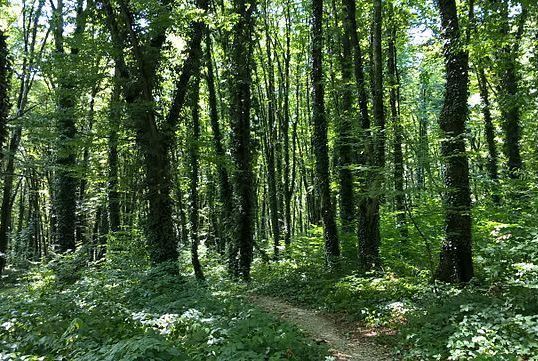This activity does not have any upcoming sessions open for registrations on ActivityHero right now. We can send you an email when they do.
NATURE SCIENCE LAB
Wednesdays, September 14- December 14 (no class Oct 12 and Nov 23; 12 weeks)
11:00am-12:15pm
Ages 8-10
Students explore the world around them as they investigate the biology and ecology of plants and animals, and the environment they inhabit. We study what mosses and lichens really are, look at the microhabitats of different bugs, dissect an owl pellet to see what they eat, use microscopes to see the tiny critters that live in a pond, and more! All lab costs are included in the registration fee.
Instructor: Ashley Blocker, BSc
Location: Science Center (suite 5) - Roswell
Course fee: $220 or $20/lab - DISCOUNTED - $200
10% sibling discount
Register for full semester or individual labs
Click "See More Dates" to view all session options.
LAB SCHEDULE:
MOSSES AND LICHENS - Wednesday, September 14
We start the semester by investigating some of the smallest plants found in your backyard. Students use microscopes to investigate mosses and lichens (and find out that lichens are actually two organisms), and create their own living terrarium.
SCIENCE OF LEAVES - Wednesday, September 21
Students use leaf rubbings to learn about the different species of trees and create a nature inspired masterpiece. We also conduct a chromatography experiment to look at leaf pigments and find out why green leaves change color in the fall.
FLOWER DISSECTION - Wednesday, September 28
We learn to properly use dissections tools as we dissect and study the different parts of a flower, observe similarities and differences of different flower types, and discuss why different flowers have specific shapes.
FRUITS AND SEEDS - Wednesday, October 5
This week we dissect fruits and seeds to investigate their characteristics, and help us answer questions about them.
TERRESTRIAL INVERTEBRATES - Wednesday, October 19
Students investigate a decomposing log to see how many kinds of invertebrates we can find, what part of the log they like to live in and what makes them incredible.
HERPETOLOGY - Wednesday, October 26
This week we study reptiles and amphibians that are found in our yards and parks. We learn how to identify them, study what habitats they prefer, and investigate what it means to be a native, non-native or invasive species.
ORNITHOLOGY - Wednesday, November 2
Students collect scientific data and use citizen science to help scientists determine range and populations of native bird species. We learn how to identify birds using their unique characteristics, and study a bird food web as we dissect owl pellets.
MAMMALOGY - Wednesday, November 9
Students will study the mammals that call the southeastern United States their home. We learn how to identify the tracks and scat of different mammals and discover what it means to be a keystone species.
MICROSCOPIC CRITTERS - Wednesday, November 16
In this lab, students will investigate cool aquatic critters. We look for and identify microscopic protists and invertebrates in water samples from nearby water sources.
WATER QUALITY LAB - Wednesday, November 30
This week, we learn about nutrient cycles and pollutants in our waterways as we conduct chemistry tests on water samples from our local ponds.
WATERSHEDS - Wednesday, December 7
Students simulate the movement of water (and pollutants) across a landscape to the ocean using a model to study where our water goes and what it takes along the way.
SOILS AND ROCKS - Wednesday, December 14
This week we study the different types of soils and rocks found in our backyards. We investigate soil as a habitat, compare the absorbency of different soils, and discuss why this matters in the local ecosystem.
We are so glad to offer the services you need! We had a blast teaching her, and look forward to seeing her again!
We are so glad your kid enjoyed the class! We look forward to teaching him soon!










We are so glad she loved the workshop, we enjoyed teaching her!